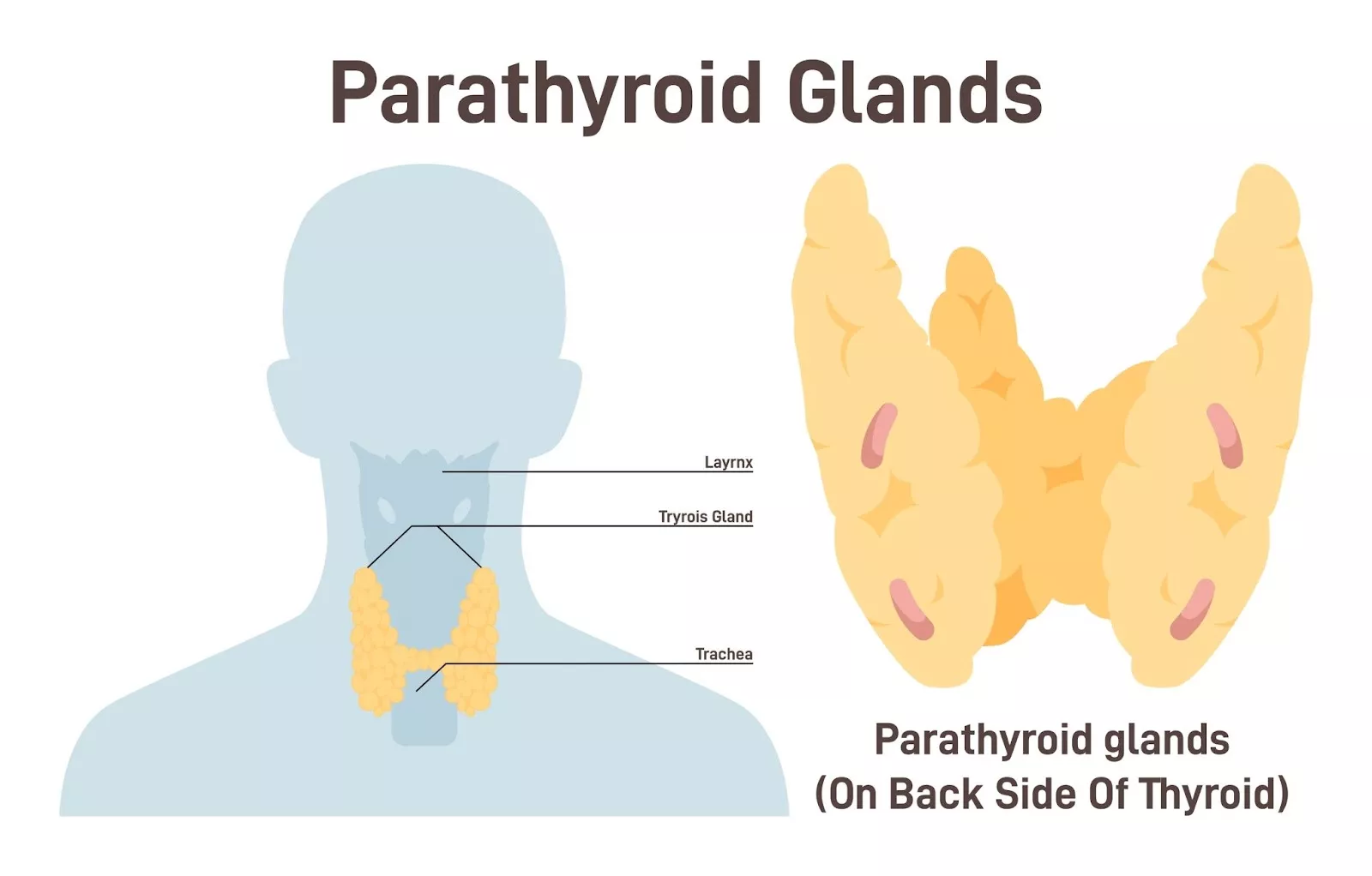
Parathyroid disorders affect small glands in the neck that regulate calcium levels in the body. These conditions can lead to either too much or too little calcium in the blood, causing various symptoms like fatigue, bone pain, or muscle cramps. Diagnosis typically involves blood tests and imaging. Treatment options range from medication to surgery, depending on the specific disorder.
The parathyroid glands are four small glands located in your neck, near or attached to the thyroid gland. These tiny glands, each about the size of a grain of rice, play a crucial role in regulating calcium levels in your blood and bones, and do this by producing parathyroid hormone (PTH). When calcium levels in your blood drop, the parathyroid glands release more PTH which helps is crucial for many bodily functions, including bone health, muscle contractions, and nerve signalling. Despite their name and location, they're separate from the thyroid and have a different function.

Problems with the parathyroid gland can can be broadly categorised into two main types:
At Hills Surgical Oncology, serving patients in Wahroonga and the surrounding areas, Dr Muzib Abdul-Razak specialises in diagnosing and treating all types of parathyroid disorders. His expertise as a surgical oncologist in Sydney ensures that patients receive the most appropriate and effective treatment for their specific condition.
Image suggestion: A chart comparing normal PTH levels with levels in hyper- and hypoparathyroidism]
The causes of parathyroid disorders can vary depending on the specific condition:Causes of Hyperparathyroidism:
Causes of Hypoparathyroidism:
Understanding these causes helps Dr Muzib Abdul-Razak and the team at Hills Surgical Oncology develop targeted treatment plans for patients in the Norwest area and beyond.
Symptoms of parathyroid disorders can be subtle and may be mistaken for other conditions. They can vary depending on whether you have hyperparathyroidism or hypoparathyroidism.
Symptoms of Hyperparathyroidism:
Symptoms of Hypoparathyroidism:
If you experience any of these symptoms, it's important to seek medical advice promptly.
Accurate diagnosis is essential for effective treatment of parathyroid disorders. The diagnostic process typically involves several steps:
Treatment for parathyroid disorders depends on the specific condition and its severity. At Hills Surgical Oncology, we offer a range of treatment options:
If you require parathyroid surgery, knowing what to expect during recovery can help you prepare:

Give our friendly receptionists a call on 1300 560 311 and they can help find a convenient time at all our locations. For urgent appointments, please let our receptionists know and we can try find the earliest time to see you.